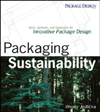BioPad Provides Sustainable Packaging Option for Corrosion Inhibition

Created by Cortec Corporation, BioPad® is a unique “green” technology flexible corrosion inhibiting device constructed from biobased non-woven material, providing a sustainable packaging option for corrosion inhibition. Its high VpCI® concentration, in combination with a thin design, results in material reduction by up to 94% in comparison to similar polyurethane foam emitting devices.
This powerful USDA Certified Biobased Product provides up to two times as much corrosion inhibiting action as its conventional VCI counterpart. BioPad® is cost-effective, adaptable, and easily applied. Simply placing it into your package will allow metal items to be protected while leaving them ready for use. BioPad is excellent for protection of ferrous and non-ferrous metals, the company states, as well as various alloys: galvanized and carbon steels, copper, brass, aluminum, zinc, etc. It is also free of nitrites and chromates.
For years, a major marine engine manufacturer has used Cortec® VpCI® to protect the externals of massive ship engines and motor shafts being stored outdoors near the sea for 12 months awaiting shipment. They conducted a test to see if they could use BioPad to protect the internals of the engines from corrosion. They hung one BioPad inside each of three different engine voids for six months of outdoor testing. The test was successful as there were no traces of corrosion, and the manufacturer decided to use BioPad. Other advantages of using this material were that it contained renewable materials derived from corn-processing byproducts. It had a lighter smell and protected more than twice as much space per square meter than the competitor’s product, making it a more cost-effective option.
BioPad conforms to NACE Standards TM0208-2008 and RP0487-2000, as well as MIL-I-22110C. It has been tested by a certified laboratory in accordance with ASTM D-1748 (Humidity Test) and ASTM D 1735 with excellent results. BioPad® is a USDA-Certified Biobased Product and is now able to display a unique USDA label that highlights its percentage of biobased content.
Looking for a reprint of this article?
From high-res PDFs to custom plaques, order your copy today!









